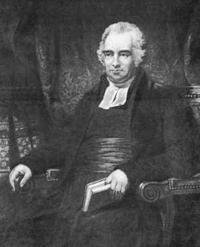Over My Shoulder #5: Susan Sontag’s Against Interpretation
You know the rules. Here’s the quote. This one is from Susan Sontag’s essay, Against Interpretation (1964):
Interpretation in our own time, however, is even more complex. For the contemporary zeal for the project of interpretation is often prompted not by piety toward the troublesome text (which may conceal an aggression), but by an open aggressiveness, an overt contempt for appearances. The old style of interpretation was insistent, but respectful; it erected another meaning on top of the literal one. The modern style of interpretation excavates, and as it excavates, destroys; it digs
behindthe text, to find a sub-text which is the true one. The most celebrated and influential modern doctrines, those of Marx and Freud, actually amount to elaborate systems of hermeneutics, aggressive and impious theories of interpretation. All observable phenomena are bracketed, in Freud’s phrase, as manifest content. This manifest content must be probed and pushed aside to find the true meaning–the latent content–beneath. For Marx, social events like revolutions and wars; for Freud, the events of individual lives (like neurotic symptoms and slips of the tongue) as well as texts (like a dream or a work of art)–all are treated as occasions for interpretation. According to Marx and Freud, these events only seem to be intelligible. Actually, they have no meaning without interpretation. To understand is to interpret. And to interpret is to restate the phenomenon, in effect to find an equivalent for it.Thus, interpretation is not (as most people assume) an absolute value, a gesture of the mind situated in some timeless realm of capabilities. Interpretation must itself be evaluated, within a historical view of human consciousness. In some cultural contexts, interpretation is a liberating act. It is a means of revising, of transvaluing, of escaping the dead past. In other cultural contexts, it is reactionary, impertinent, cowardly, stifling.
4
Today is such a time, when the project of interpretation is largely reactionary, stifling. Like the fumes of the automobile and of heavy industry which befoul the urban atmosphere, the effusion of interpretations of art today poisons our sensibilities. In a culture whose already classical dilemma is the hypertrophy of the intellect at the expense of energy and sensual capability, interpretation is the revenge of the intellect upon art.
Even more. It is the revenge of the intellect upon the world. To interpret is to impoverish, to deplete the world–in order to set up a shadow world of
meanings.It is to turn the world into this world. (This world! As if there were any other.)The world, our world, is depleted, impoverished enough. Away with all duplicates of it, until we again experience more immediately what we have.
5
In most modern instances, interpretation amounts to the philistine refusal to leave the work of art alone. Real art has the capacity to make us nervous. By reducing the work of art to its content and then interpreting that, one tames the work of art. Interpretation makes art manageable, conformable.
This philistinism of interpretation is more rife in literature than in any other art. For decades now, literary critics have understood it to be their task to translate the elements of the poem or play or novel or story into something else. Sometimes a writer will be so uneasy before the naked power of his art that he will install within the work itself–albeit with a little shyness, a touch of the good taste of irony–the clear and explicit interpretation of it. Thomas Mann is an example of such an overcooperative author. In the case of more stubborn authors, the critic is only too happy to perform the job.
The work of Kafka, for example, has been subjected to a mass ravishment by no less than three armies of interpreters. Those who read Kafka as a social allegory see case studies of the frustrations and insanity of modern bureaucracy and its ultimate issuance in the totalitarian state. Those who read Kafka as a psychoanalytic allegory see desperate revelations of Kafka’s fear of his father, his castration anxieties, his sense of his own impotence, his thralldom to his dreams. Those who read Kafka as a religious allegory explain that K. in The Castle is trying to gain access to heaven, that Joseph K. in The Trial is being judged by the inexorable and mysterious justice of God…. Another oeuvre that has attracted interpreters like leeches is that of Samuel Beckett. Beckett’s delicate dramas of the withdrawn consciousness–pared down to essentials, cut off, often represented as physically immobilized–are read as statements about modern man’s alienation from meaning or from God, or as an allegory of psychopathology.
Proust, Joyce, Faulkner, Rilke, Lawrence, Gide … one could go on citing author after author; the list is endless of those around whom thick encrustations of interpretation have taken hold. But it should be noted that interpretation is not simply the compliment that mediocrity pays to genius. It is, indeed, the modern way of understanding something, and is applied to works of every quality. Thus, in the notes that Elia Kazan published on his production of A Streetcar Named Desire, it becomes clear that, in order to direct the play, Kazan had to discover that Stanley Kowalski represented the sensual and vengeful barbarism that was engulfing our culture, while Blanche Du Bois was Western civilization, poetry, delicate apparel, dim lighting, refined feelings and all, though a little worse for wear to be sure. Tennessee Williams’ forceful psychological melodrama now became intelligible: it was about something, about the decline of Western civliization. Apparently, were it to go on being a play about a handsome brute named Stanley Kowalski and a faded mangy belle named Blanche Du Bois, it would not be manageable.
— Susan Sontag (1964/1966), Against Interpretation, in Against Interpretation, 6–9.
 This new
This new